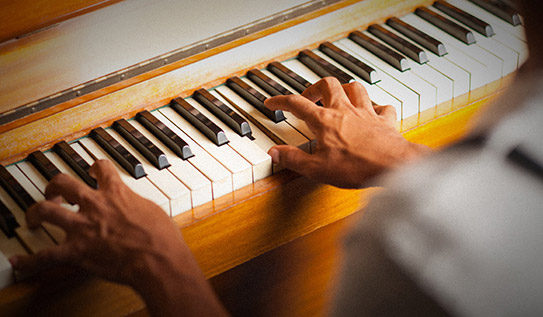Copyright protection for your music is automatically given when you record the song, but if you want the full force of the law on your side, you must register the copyright. Learn how to register your music’s copyright and more.

Original musical compositions, including song lyrics, are protected under federal copyright law, both published and unpublished. A musical work has a copyright as soon as it is generated in a fixed format, such as sheet music or an audio recording. A concept for a song or melody cannot be protected by copyright. When copyrighting music, copyright rules provide copyright owners with legal protection. The procedure for copyrighting music is simple.
It should be noted that band names, song titles, and brief phrases are not protected by copyright.
Copyright Holders’ Rights
Table of Contents
What is the point of copyrighting my music? Work copyrights provide the owner of the copyright a variety of rights over their copyrighted music, including:
The right to publically copy, sell, or distribute copies of sheet music or audio recordings. The “first sale” doctrine states that the copyright holder has the first right to duplicate and distribute their work. Following that, others must pay a licence fee to the copyright holder.
The right to make derivative music based on the original musical composition.
The right to publicly play the musical piece. When a musical piece is played, the owner of the copyright earns royalties.
The right to publicly show the musical work.
Registration of Copyright
While copyright owners are not required to register their copyright with the United States Copyright Office, doing so provides them with extra legal rights, such as:
It establishes a public record of the copyright as well as the date it was established.
It enables the copyright holder to bring an infringement claim if their copyright is violated.
If someone violates the copyright of music, the amount of damages the copyright owner may obtain is determined by when the copyright was registered.
If the music copyright is registered within three months of the infringement, the copyright owner is entitled to attorney’s costs and statutory damages ranging from $750 to $30,000 for each infringement.
If the infringement happens before the copyright to the song is registered, the owner of the copyright may only seek real damages.
Procedures for Registration
To copyright music, the owner must submit the following documents to the copyright office:
A filled-out application form. The copyright holder may copyright music online by filling out an online application or by filling out and submitting a paper application. The owner of the copyright might copyright a single song or numerous songs on an audio recording. A song’s copyright might take six months or more to process.
As of this date, there is a nonrefundable $35 filing charge for online applications and a $85 filing fee for hardcopy applications. Fees are subject to change, so always check the US Copyright website.
Your work in a non-returnable copy or copies. The number of copies varies; for unpublished works, the owner of the copyright must provide one full copy or audio recording.
The date your registration becomes effective is the day the US Copyright Office receives your completed application documents. If you apply online, you will get an email confirming that your application was received; if you submit a paper application, you will receive a letter requesting further information or a certificate of registration if the application is denied.
Copyright Duration
For musical compositions produced on or after January 1, 1978, the work is protected from the date of creation plus an extra 70 years after the death of the copyholder.
The copyright duration for musical compositions produced before January 1, 1978 but not published or registered prior to that date is the same as for works created on or after that date.
The work was protected for 28 years for musical compositions produced before January 1, 1978. Amendments to the Copyright Act of 1976 increased the renewal period by 20 years, for a total of 67 years; the work is protected for 95 years.
Copyright Restrictions
The “fair use” theory allows for limited use of copyrighted content without infringing on the rights of the copyright owners. Comment or criticism, instructional usage, journalistic reporting, and satire are a few examples.
Copyright protects creative musical compositions in a set format and grants holders of copyright certain exclusive rights to their work. While copyright holders are not required to register their work with the United States Copyright Office, doing so provides them with legal protection against copyright infringement.
Copy and paste this <iframe> into your site. It renders a lightweight card.
Preview loads from ?cta_embed=1 on this post.